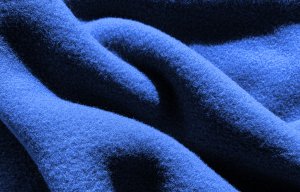
PrimaLoft and Shanghai Challenge Textile partner for technological innovation
PrimaLoft Biotechnology offers an answer to microplastics and a solution for product end of life

14th September 2020
Innovation in Textiles
|
Latham, NY
PrimaLoft, Inc., a leader in advanced material technology, is partnering with more a number of outdoor sports, fashion, lifestyle and home furnishing brands to introduce PrimaLoft Bio to consumers this autumn. PrimaLoft Bio is a biodegradable*, 100% recycled synthetic insulation and performance fabric, according to PrimaLoft.
“The prevalent use of plastic in our society has a huge impact on our environment because of its inability to break down over time,” says Mike Joyce, president and CEO of PrimaLoft. “PrimaLoft Bio has been specifically designed to biodegrade in the environments where most plastics eventually end up: landfills and ocean water.”
PrimaLoft Bio is comprised of high-performance fibres that are made from 100% recycled materials (mainly plastic bottles) that biodegrade in specific environments such as landfills, oceans, and wastewater. At the same time, insulation and fabric made from PrimaLoft Bio fibres provide the same high-quality, durable performance as products with virgin polyester fibers - providing lightweight water resistance, warmth and comfortable protection for a variety of activities and weather conditions, PrimaLoft explains.
Additionally, PrimaLoft Bio fibres are, the company says, renewable in a circular economy as it’s possible to rejuvenate the fibres into new high-performance material, repeated time and again, without any compromise on quality.
“When PrimaLoft Bio is exposed to oceanwater, wastewater or landfill environments, naturally occurring microbes break down the fibres to their natural elements, without leaving behind any harmful waste,” PrimaLoft says. “The fibres will be transformed over time into water, CO2, methane, biomass and humus – a common component of potting soil. And PrimaLoft Bio will do so at a dramatically faster rate than standard polyester. In accelerated test conditions, PrimaLoft Bio fibres reach near complete biodegradation in under two years, while standard polyester remains almost completely intact. Additionally, PrimaLoft Bio insulation and fabric degrade only in these specific environments, as its fibres are highly durable. They will not break down during use, in the washing machine or in the closet – for the full long life of the garment.”
According to a 2018 UN Environment report, PrimaLoft enlightens, only 9% of all plastic that has ever been produced has been recycled, with roughly 79% ending up in landfills or the natural environment. Approximately 8 million tons of plastic enter the world’s oceans each year, the company adds. Joyce adds: “PrimaLoft Bio is an important step forward in providing sustainable solutions for microfiber pollution, throughout the entire life-cycle of a product.”
PrimaLoft says the unique technology has enabled an impressive group of outdoor sports, fashion and home furnishing brands to join the PrimaLoft Bio community in setting sustainability forward. The first styles with PrimaLoft Bio insulation will be available to consumers in the upcoming autumn 2020 collections from brands like 4F, ESKA, Goldwin, Herno, Horsefeathers, Icebug, Jack Wolfskin, Klättermusen, Maloja, Namuk, Norrøna, Reusch, Roeckl, Ternua, Traumina and Viking. Other brands like Helly Hansen, Houdini, Montane and Rossignol will follow with their own styles, in upcoming seasons.
*93.8% biodegradation in 646 days under ASTM D5511 conditions (landfill environment). 76.6% biodegradation in 973 days under ASTM D6691 conditions (marine/ocean environment). 12.9% biodegradation in 120 days under ASTM D5210 conditions (wastewater environment). The stated rate and extent of degradation do not mean that the product will continue to degrade.

Business intelligence for the fibre, textiles and apparel industries: technologies, innovations, markets, investments, trade policy, sourcing, strategy...
Find out more